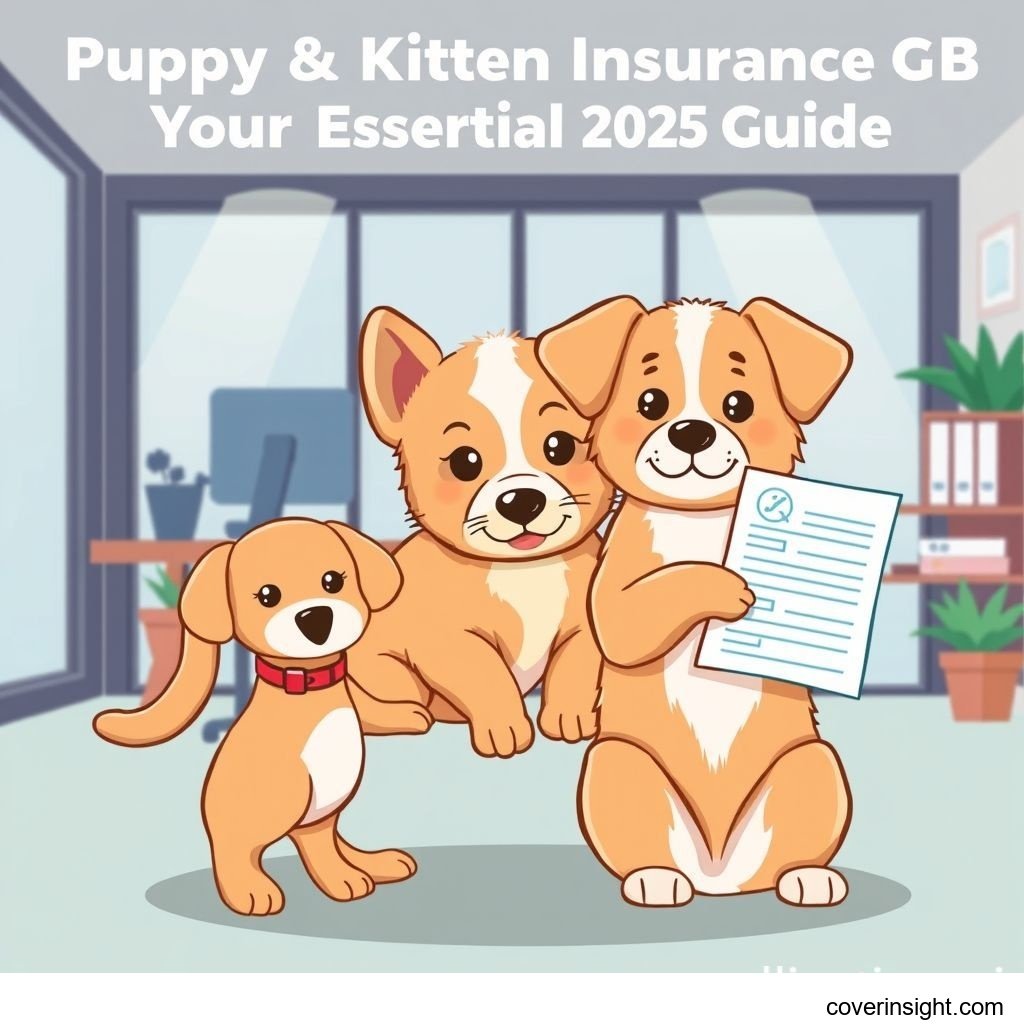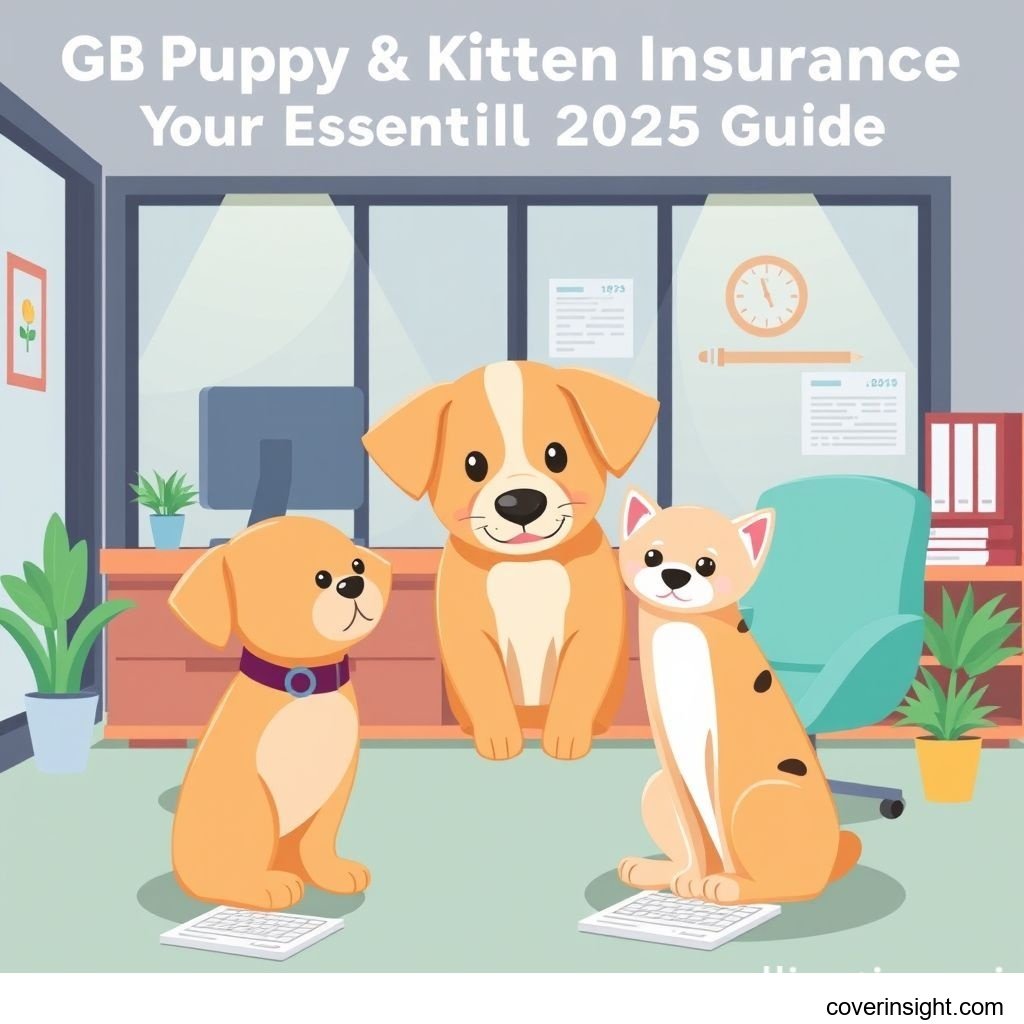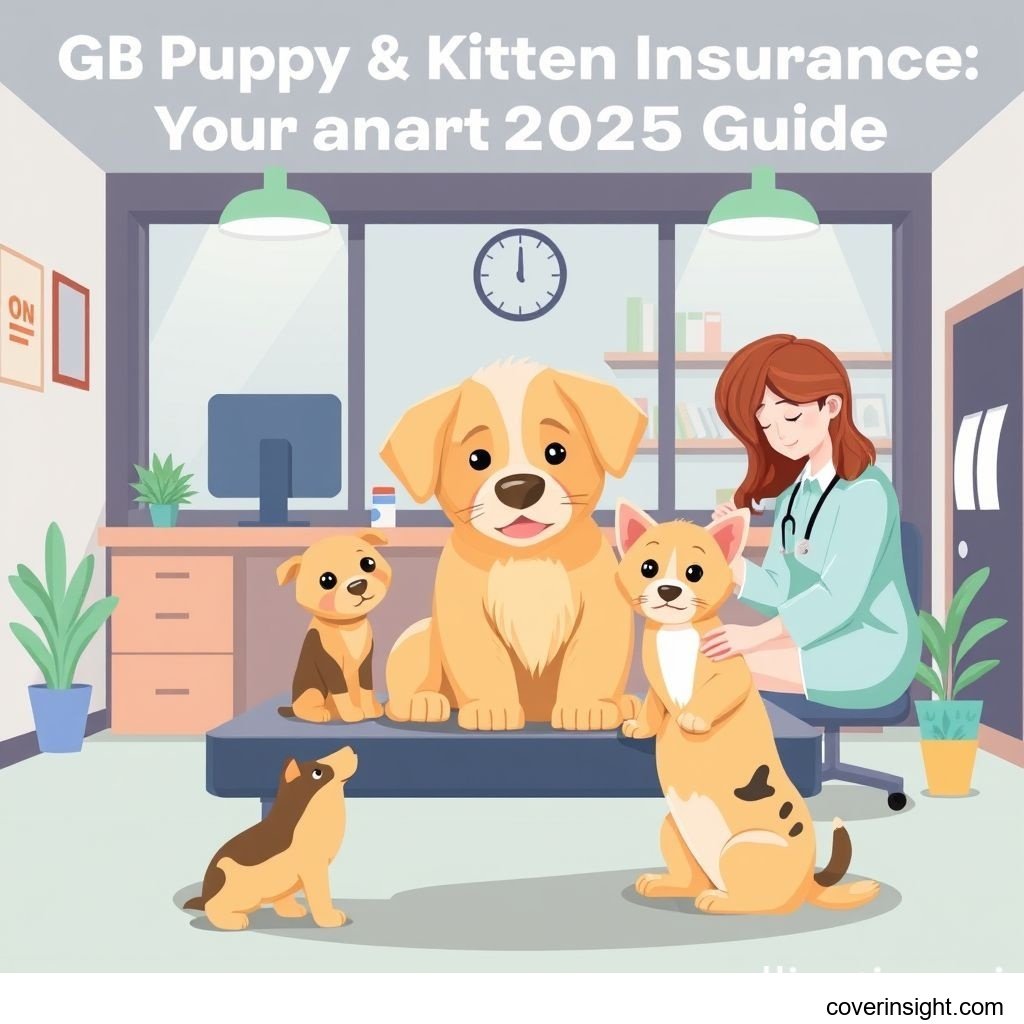Puppy & Kitten Insurance GB: Your Essential 2025 Guide
Introduction
As we look towards 2025, bringing a new puppy or kitten into your home in Great Britain is an exciting prospect, full of joy and unconditional love. However, responsible pet ownership extends beyond cuddles and playtime; it crucially involves planning for their health and well-being. This is where puppy and kitten insurance comes into its own. With veterinary costs steadily rising, having the right insurance policy in place isn't just a sensible precaution; it's an essential safety net that can prevent difficult financial decisions should your new family member fall ill or have an accident. This guide aims to demystify pet insurance for new owners in GB, helping you navigate your options for 2025.
Coverage Details
Understanding what your pet insurance policy covers – and what it doesn't – is paramount. Policies vary significantly, so a keen eye for detail is needed.
What’s Included
Most comprehensive puppy and kitten insurance policies in GB typically cover a range of crucial aspects, providing much-needed peace of mind. Expect to find cover for:
-
Veterinary Fees: This is the cornerstone of any policy, covering the costs of examination, diagnosis, treatment, and medication for illnesses and injuries. This can range from a simple infection to complex surgeries or ongoing conditions like diabetes.
-
Third-Party Liability: A vital inclusion, especially for dogs, covering legal costs and compensation if your pet causes injury to another person or animal, or damages property.
-
Lost or Stolen Pet: Coverage for advertising and reward costs, and sometimes a contribution towards the purchase price if your pet is not found.
-
Complementary Therapies: Many policies now include costs for hydrotherapy, acupuncture, or physiotherapy prescribed by a vet.
-
Behavioural Issues: Some policies offer cover for consultations with a qualified animal behaviourist.
It's worth noting the different types of policies: "Accident-Only" provides basic cover for injuries; "Time-Limited" covers conditions for a specific period (e.g., 12 months) or up to a fixed amount; "Per-Condition" offers a set amount per illness/injury with no time limit; and "Lifetime" cover, often considered the gold standard, provides ongoing coverage for chronic conditions throughout your pet's life, as long as you renew the policy annually.
Common Exclusions
Just as important as knowing what's included is understanding what your policy won't cover. Common exclusions across most GB pet insurance policies include:
-
Pre-existing Conditions: Any illness, injury, or symptom that was evident before the policy started or during a waiting period. This is why getting cover early for your puppy or kitten is so beneficial.
-
Routine and Preventative Care: This typically includes vaccinations, routine worming and flea treatments, annual health checks, neutering or spaying, and preventative dental cleaning. These are considered the standard costs of pet ownership.
-
Elective Procedures: Cosmetic surgeries or procedures not deemed medically necessary.
-
Pregnancy and Breeding: Costs associated with gestation, birth, or complications from breeding.
-
Dental Care (Non-Accidental): While accidental dental injuries are often covered, routine scaling and polishing or treatment for gum disease not caused by injury are generally excluded.
-
Specific Breed Exclusions: Rarely, some policies might exclude certain conditions known to affect specific breeds.
Cost Analysis
The cost of puppy and kitten insurance in GB can vary significantly, reflecting the unique profile of your pet and the breadth of cover you choose.
Price Factors
Several elements play a crucial role in determining your premium:
-
Breed: Certain breeds are predisposed to specific health conditions, making them more expensive to insure. For instance, breeds prone to hip dysplasia or breathing issues might have higher premiums.
-
Age: Younger animals are generally cheaper to insure as they are less likely to have developed health issues. As your pet ages, premiums tend to rise.
-
Location: Veterinary costs can vary geographically across GB. Areas with higher living costs or specialist vet practices might see higher premiums.
-
Type of Coverage: Lifetime policies are the most comprehensive and, therefore, the most expensive, offering the best long-term protection. Accident-only policies are the cheapest.
-
Excess and Deductibles: A higher excess (the amount you pay upfront per claim) will typically result in a lower monthly premium.
-
Pet's Health History: While less applicable for brand-new puppies and kittens, any pre-existing conditions (even minor ones from previous ownership if applicable) will influence cost.
Saving Tips
While you want comprehensive cover, there are smart ways to manage costs without cutting corners on essential protection:
-
Shop Around: Use comparison websites and get quotes directly from different insurers. Don't just stick with the first quote you get.
-
Consider Multi-Pet Discounts: If you're insuring more than one pet, many insurers offer discounts for multiple policies.
-
Pay Annually: Paying your premium in one lump sum annually is often cheaper than monthly instalments.
-
Increase Your Excess: If you have the financial capacity, opting for a higher voluntary excess can reduce your monthly premium. Just be sure you can comfortably afford this amount if you need to make a claim.
-
Insure Early: The younger and healthier your puppy or kitten is, the cheaper the initial premiums will be, and you'll avoid issues with pre-existing conditions down the line.
-
Maintain Pet Health: A healthy diet, regular exercise, and preventative care (vaccinations, parasite control) can keep vet visits to a minimum and potentially prevent future claims.
FAQs
How much does puppy/kitten insurance cost?
The cost can vary widely, typically ranging from £10 to £50+ per month for a puppy or kitten in GB, depending on the factors mentioned above (breed, age, location, type of cover). For a detailed understanding, it's best to get personalised quotes.
What affects premiums?
As discussed under "Price Factors," premiums are primarily influenced by your pet's breed, age, your geographical location, the level and type of coverage you choose, and the excess amount you opt for.
Is it mandatory?
No, puppy and kitten insurance is not mandatory in GB, unlike car insurance for example. However, many animal welfare organisations and experienced pet owners strongly recommend it due to the potentially high costs of veterinary care.
How to choose?
Choosing the right policy involves more than just looking at the price tag.
-
Assess Your Needs: Consider your pet's breed-specific risks and your financial comfort level for vet bills.
-
Compare Coverage: Look beyond just the headline price. Compare what's included and, crucially, what's excluded. Pay attention to the maximum payout limits per condition or year, and whether it's a lifetime policy.
-
Read Reviews: Check independent reviews of the insurer's customer service and claims process.
-
Check Regulation: Always ensure the insurer is regulated by the [Financial Conduct Authority] (FCA). For broader understanding of insurance, you might want to explore our [Insurance Resources Global].
Consequences of no coverage?
Without insurance, you are solely responsible for all veterinary bills. This can quickly amount to thousands of pounds for accidents or serious illnesses. Imagine Sarah from Bristol, whose new Labrador puppy, Buster, swallowed a foreign object. Without her puppy insurance, the emergency surgery and subsequent aftercare, costing over £3,000, would have been a real hammer blow to her finances. Her insurer, a GB-based provider, covered the vast majority, leaving her only to pay the excess. The grim reality is that, in some cases, owners without insurance might face the heartbreaking decision of not being able to afford necessary life-saving treatment, which is a position no pet owner wants to be in. Data from the Association of British Insurers (ABI) shows that the average pet insurance claim paid out in the UK in 2023 was over £800, underscoring the potential financial hit. For more specifics on UK policies, check out our [GB Insurance Home].
Author Insight & Experience: As someone living in GB and having shared my home with various animals over the years, I can tell you that pet insurance is one of those things you hope you'll never need, but are eternally grateful for when you do. Based on my experience, the sheer relief of knowing that you can focus on your pet's recovery rather than the looming vet bill is immeasurable. Pet ownership is a marathon, not a sprint, and unexpected health hiccups are part and parcel of that journey. Getting adequate cover for your puppy or kitten from day one isn't just a smart financial move; it's an act of love that provides true peace of mind.








Comments